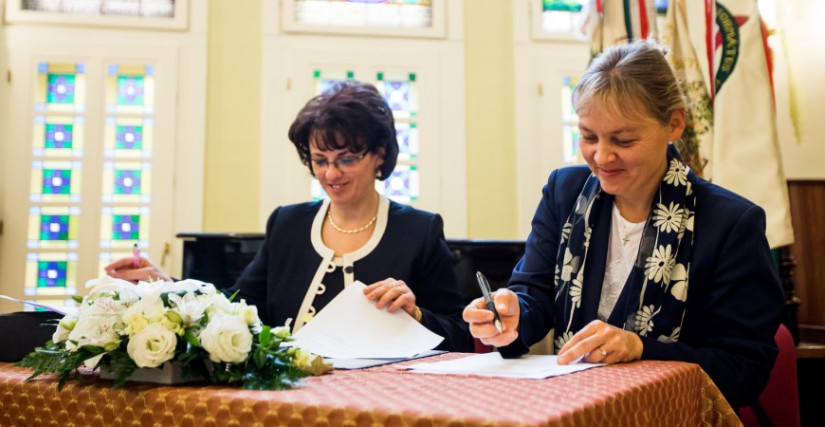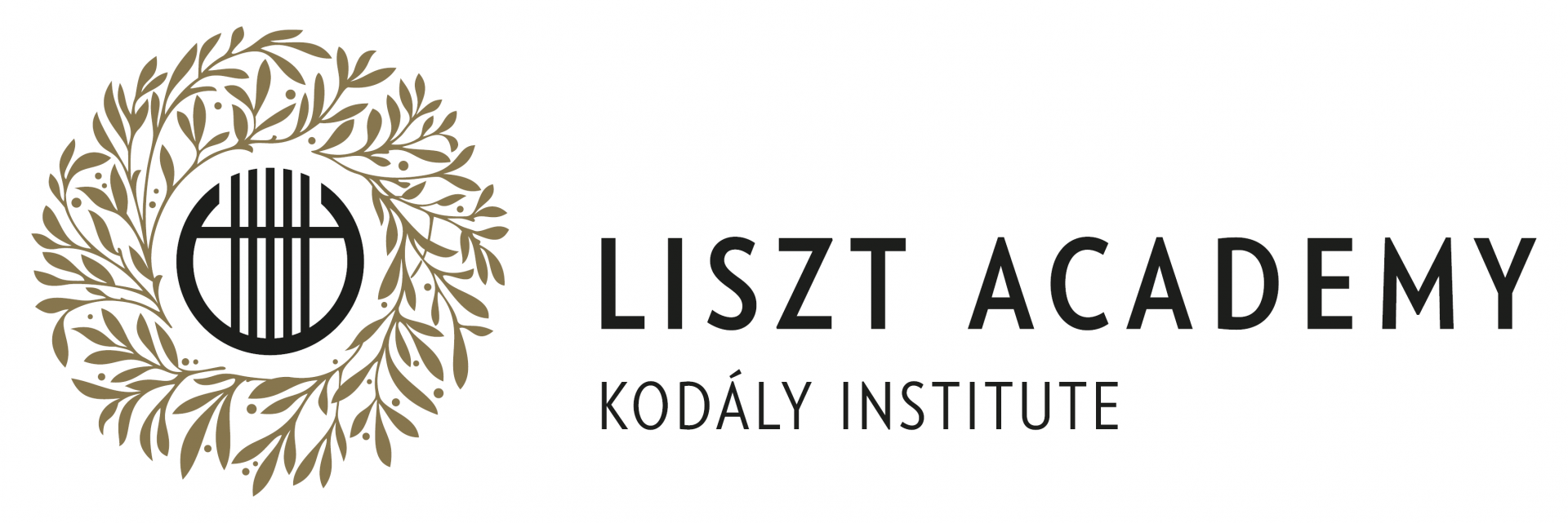Model school in the Calvinist Elementary School in Kecskemét
On 13 October, the Kodály Institute of the Liszt Academy signed a cooperation agreement with the Calvinist Elementary School in Kecskemét: as of the autumn of 2016, also Kodály’s home town will launch a model class applying the world-renowned music pedagogy combined with 21st-century methods.
As Andrea Vigh, President of the Liszt Academy pointed out at the opening ceremony: „Through music, the essence of Kodály’s music pedagogy must be disseminated all over the world. The purpose of this model programme is to demonstrate that even with a couple of hours of music and therefore, emotional training, it is well possible to achieve exceptional results, as the arts are vital for the education of children.” – The central activity lying at the heart of music classes is still singing, which most efficiently develops both musicality and community spirit. Music is paired with movement, partly in a guided manner, following the music (utilising the principles of the Swiss composer and educator, Émile Jaques-Dalcroze), partly, by improvised, free movements (making use of the music pedagogy of Klára Kokas). In the music classes based on these novel elements, the emphasis is not on theoretical expertise, but on the personality development and the harmonious development of emotions and intellect coming about through active music-making. The creative and playful methods based on educational principles encouraging mutual acceptance and joyful cooperation also improve long-term concentration and attention as well as the children’s sense of rhythm.

Photo: Liszt Academy / Zoltán Tuba
In the first phase titled „Kodály’s music pedagogy in the 21st century”, the curriculum was devised for elementary schools with a music programme based on methodological innovations. Its practical test phase started two years ago, in the fall of 2014 in Budapest within the framework of the strategic cooperation project of three Budapest schools (all of them in the city quarter Városmajor) and the Kodály Institute. In the last two years, the experts of the Kodály Institute have been working on the curriculum adapted for general primary schools, thus the programme aiming to revisit Kodály’s music pedagogy in practice is now extended to an additional model class thanks to the cooperation agreement with the Calvinist Elementary School as of the autumn of 2016. The head educators of the model class in Kecskemét are Borbála Szirányi and Edina Barabás, both tutors at the Kodály Institute who could already gain experience in the practical application of the new methods in the model classes in Budapest. Music lessons are jointly held by them and the regular music teachers of the school. Also, due to the fact that there is English specialisation at the Kecskemét Calvinist School, also the international students of the Kodály Institute can participate in the programme.

Photo: Liszt Academy / Zoltán Tuba
„Without an open-minded, welcoming and receptive environment, the Liszt Academy could not reveal the values that must be guarded by it. The Kodály Institute of Kecskemét is proud not only of taking care of the intellectual legacy of Zoltán Kodály, the information and knowledge that have been accumulated by the educators and researchers of the workshop in the past decades but also the accomplishments outside the Institute itself, which reflect the treasures lying in Hungarian music pedagogy and music education.” – as was stated by László Norbert Nemes, Director of the Kodály Institute prior to signing the agreement. The novelty of the model class in Kecskemét is that the results of the methodological development project focusing on the creative integration of movement accompanying singing and music appreciation will be tested for the first time. This study has been conducted by a research group run by Professor Nemes and consisting of the teachers of the Kodály Institute and of the members of the Brain Imaging Centre of the Hungarian Academy of Sciences. Furthermore, in order that music classes should become a 21st-century experience for children, the digital learning package as well as various computer applications will play an important role during these new music lessons, for instance, within the framework of the recently granted large-scale Erasmus+ call, the model class in Kecskemét will contribute to the live testing of the music reading and writing application which has been in the focal point of a team of Hungarian programmers working for years in close cooperation with experts of the Kodály Institute.


